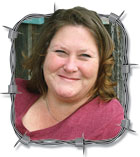Born in 1912, my father was a young man during the Great Depression. Having only gone to school a few months and, in his words, “not much caring for it,” he had already farmed for several years when the financial and marketing crisis settled in on all of America. Looking back, I can only assume that this devastating era of our country’s past shaped both him and my mother into how they lived their lives.
Growing up, I can remember him talking about how tough it was during that dark time. “My family didn’t have any money to buy anything with,” I can remember him saying many times, “and nobody else had any money to buy anything we produced on the farm. There just wasn’t any money….anywhere.”
When I would quiz him on how they managed to survive at all, he would go into a lengthy explanation of how they raised, or made, absolutely every necessity for bare survival. Now I understand why he held on to everything of any value that we used on the farm. After the past few weeks of economic ups and downs in present day markets, I can better appreciate why he distrusted banks, insurance companies and politicians to the extent that he did, and why, despite all my encouragement, he continually refused to incur significant debt throughout his entire lifetime. “If you can’t pay for it with cash, you don’t really need it,” was a favorite line of his.
All this came back to me last week as I was searching through the tools that he had left to me when he died. I needed to stretch some woven-wire field fence on a new construction project and I thought I remembered him having a device he had made long before I was born. Sure enough, I found the two pieces of native oak, clamped together with three different kinds of bolts with an assortment of nuts and washers of which no two were alike. This clamp was old when I was a kid so there’s no telling when he made it. The 2×4 oak boards were over 2 inches thick and more than 4 inches wide without a knot or blemish throughout the entire length, so that alone tells me they were cut early last century. The clamp worked as well as it always had for my small job.
Before he passed away, I can remember him telling me to “hang on to this, you might need it someday.” Thankfully, I did.
While searching for the wire clamp, I found other items “made from scratch” that caused me to hear my Dad’s voice again and again. A hand braided rope made from several lengths of sisal baler twine, with expertly designed loops on each end that Dad used to put around the legs of unborn baby calves to assist in the live delivery of the source of our income for many years. He would laugh at me when I would purchase a couple of new nylon straps at the beginning of each calving season. “Mine work better than those and they didn’t cost a thing…but a little time,” he would say.
A hand-carved wooden “bit” about two inches thick that he would tie in the mouths of calves or cows that were bloated. He contended that method was “safer” than trying to tube the bloated animal or sticking the knife through their sides to get rid of the potentially deadly gas. “And you never have to pay for a veterinarian to come out,” he’d add.
The prybar he had crafted from a Model T axle; The set of branding irons he had made with his own blacksmith forge; The replacement handle he had whittled out of persimmon for the brace and bit auger he had inherited from his dad; The list went on and on.
So, from now on, when I get to feeling sorry for myself with how terrible things are and how much worse they might become, I’ll just go out and rummage through Dad’s “stuff” and realize it’s really not that bad. We could all be more like Dad if we had to.
Jerry Crownover is a farmer and a former professor of Agriculture Education at Missouri State University. He is a native of Baxter County, Arkansas, and an author and professional speaker. To contact Jerry about his books, or to arrange speaking engagements, you may contact him by calling 1-866-532-1960 or visiting www.ozarksfn.com and click on 'Contact Us.'





